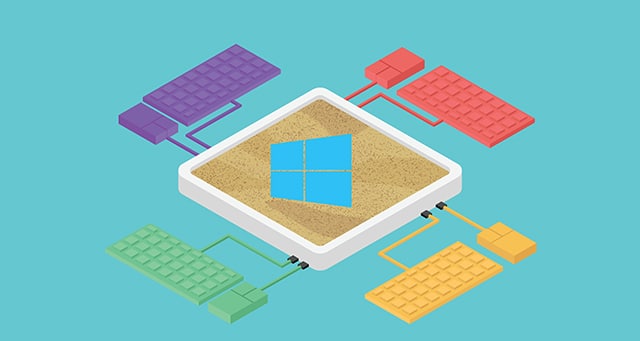
How to use Windows Sandbox to open files in a secure environment
Windows Sandbox is a built-in feature of Windows 10 and Windows 11. Its main purpose is to provide a safe environment for running applications. Anything that is executed in the sandbox, e.g., a software that is installed, remains trapped inside. It can’t break out and affect the "real" operating system.
As a consequence, malware, spyware and other unwanted and undesirable code, can’t infect the system or pull data from it.

Upgrade to Windows 10 Professional for only $39.95 and test untrusted programs safely with the updated Sandbox
In computing terms, a sandbox is an isolated environment inside which you can safely run operating systems and software without risking your data, privacy, or security. Therefore, the Windows Sandbox does exactly what it says on the tin: provides a lightweight desktop environment inside which you can safely test programs.
Why would you do this? The primary reason is security: you don’t know whether you trust a program or file, so by launching the Windows Sandbox tool in Windows 10 Professional or Enterprise you’ll create a Windows within Windows. If you’ve been experimenting with Hyper-V, you’ll see it shares the same underlying virtualization technology, albeit with some crucial differences.

Latest Windows 10 preview build is an early Christmas present for Insiders, with Windows Sandbox and other treats
It’s nearly Christmas, and Microsoft has rolled out a brand new build of Windows 10 19H1, the last of 2018, with plenty of exciting treats for users to try out.
Build 18305 for Fast ring insiders, introduces a number of improvements and new features, including a simplified Start layout and Windows Sandbox.
